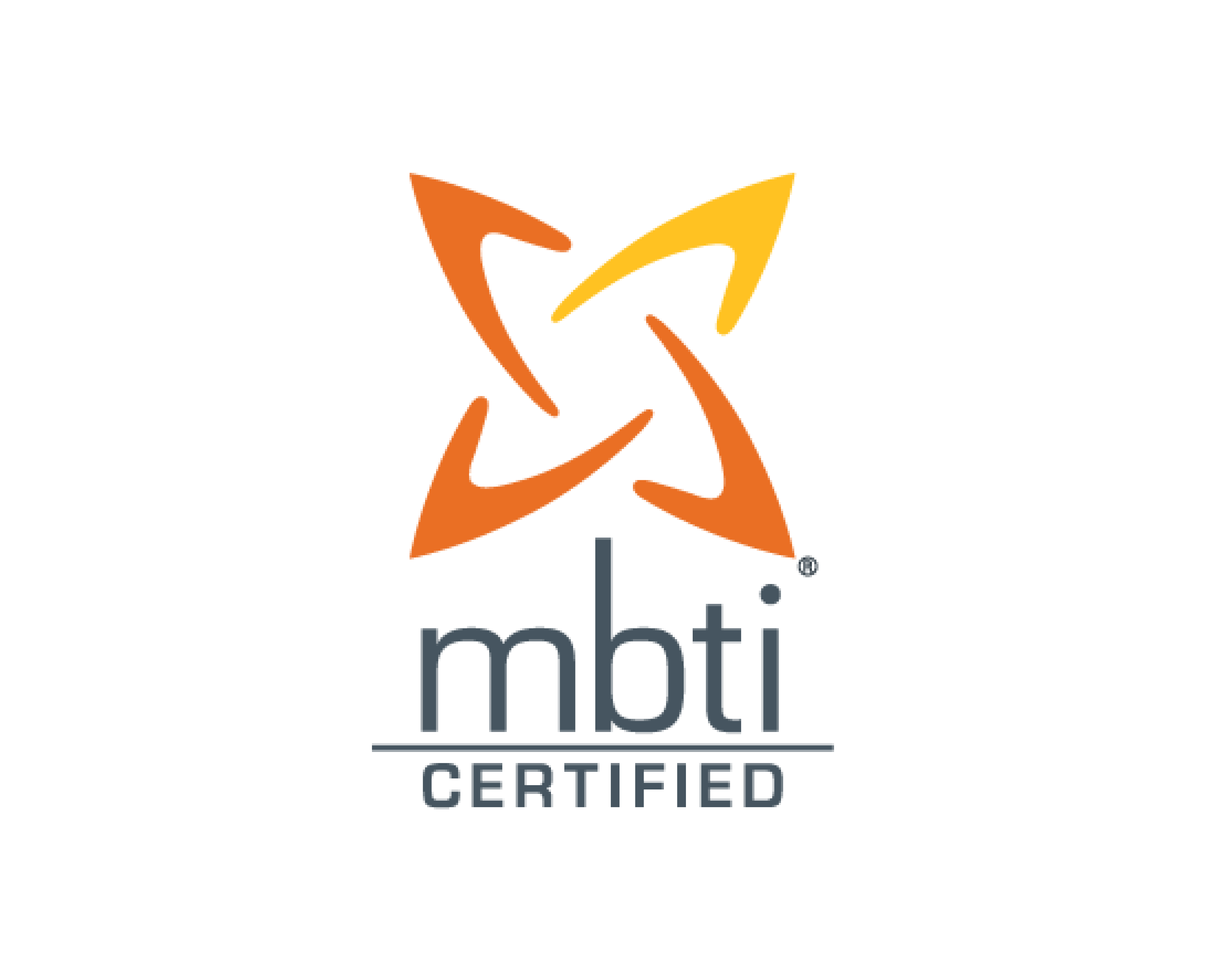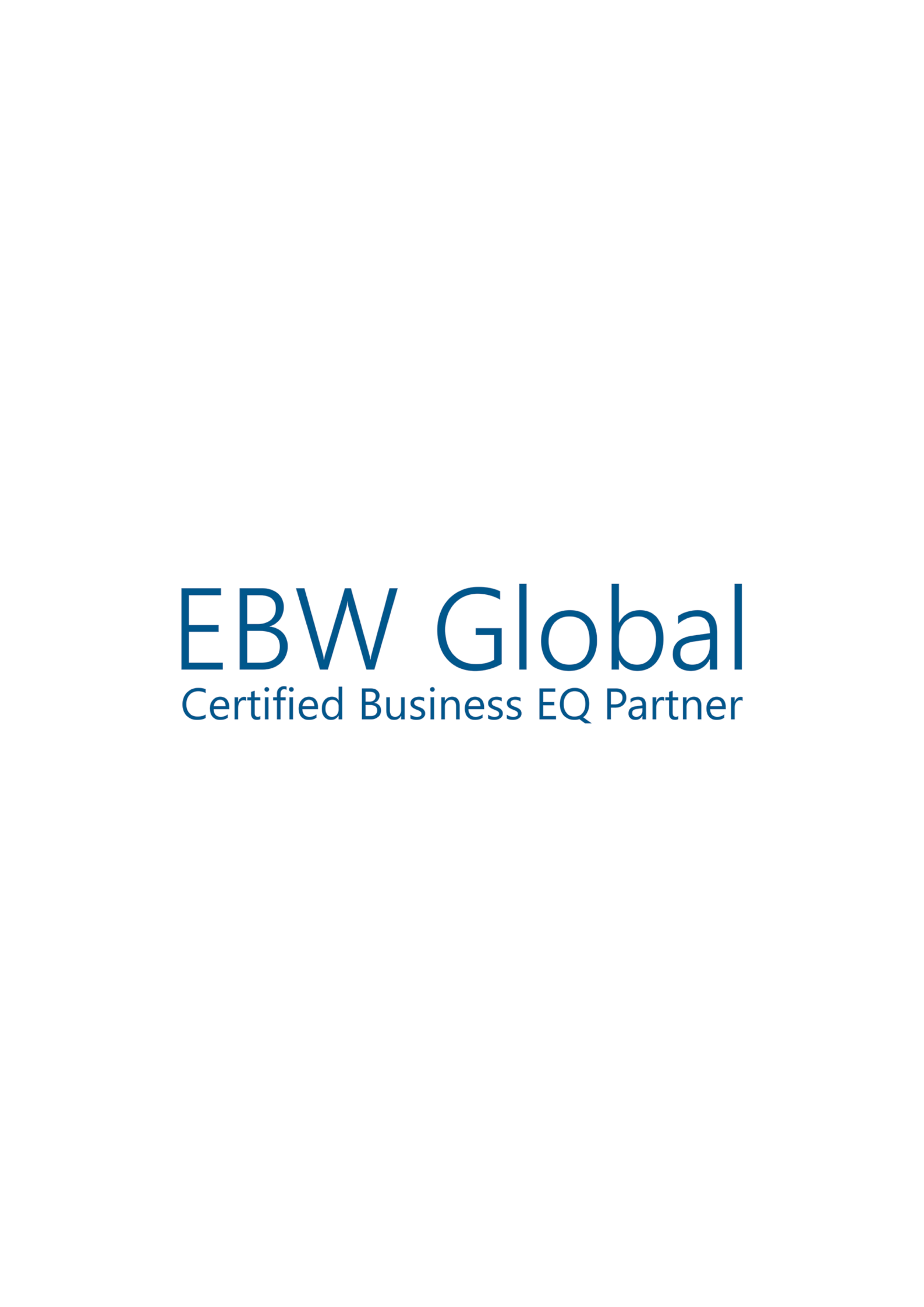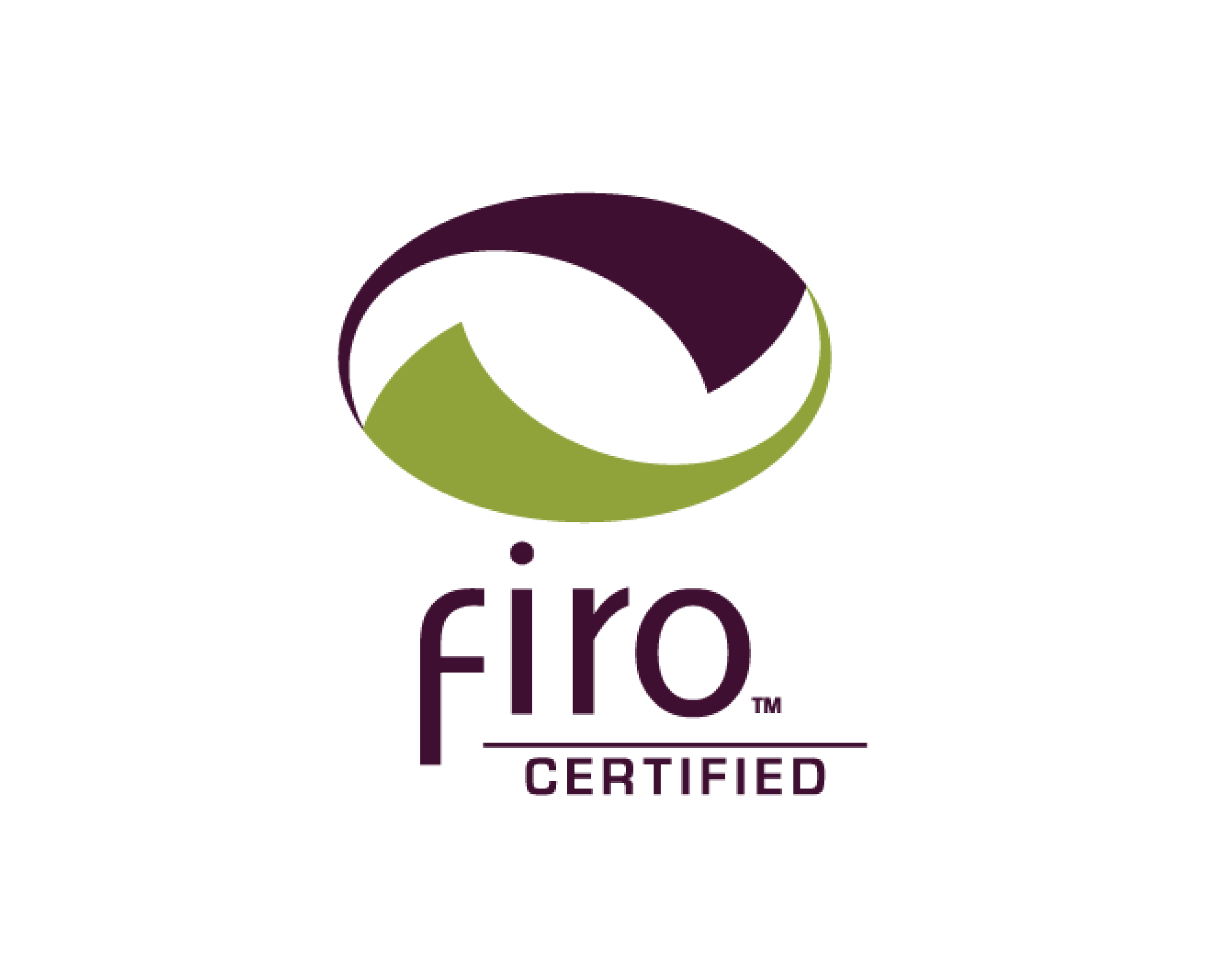Psychometric Assessments
We provide a comprehensive range of psychometric development services using online assessments to enhance self-awareness, teamwork, and leadership. These assessments offer valuable insights into how individuals think, work, and interact, and support customised development plans which are aligned with organisational goals. Our virtual delivery ensures convenience and confidentiality. Key tools include the Myers-Briggs Type Indicator (MBTI) for personality insights, Thomas-Kilmann Conflict Mode Instrument (TKI) for conflict resolution, FIRO-B for interpersonal relationships, Emotional Intelligence at Work (EBW) for emotional intelligence, and Positive Political Intelligence for navigating positive workplace politics. These tools empower individuals to develop personally, strengthen relationships, and foster high-performing teams.
MBTI
Myers-Briggs Type Indicator
-
The Myers-Briggs Type Indicator® (MBTI) is a personality assessment tool used to explore how people perceive the world and make decisions. It helps individuals understand their natural preferences, which can improve communication, decision-making, and collaboration in both personal and work environments.
This tool is especially helpful for individuals and teams going through change or looking to improve how they work together. By learning about your own personality and how it compares to others, you can avoid misunderstandings and strengthen working relationships.
The MBTI is often used to tackle common challenges like team communication, resolving disagreements, making career choices, building leadership skills. Essentially, MBTI provides personal and team development, for improving how people interact and work together.
-
The MBTI helps people better understand themselves and others, leading to clearer communication and more effective teamwork. It can improve workplace relationships and support with career planning by identifying roles that fit a person's natural personality preferences. In both work and personal settings, this self-knowledge supports better decisions and stronger connections with others.
-
The MBTI Step I assessment is straightforward and provides helpful insight into how people prefer to think, interact, and organise their lives. Here's how it works:
Step 1: Questionnaire
Participants complete a short survey (online or on paper), which usually takes about 15–20 minutes. The questions identify preferences in four areas, known as personality pairs.
Step 2: Personality Preference Pairs
Each person tends to prefer one preference from each of the following categories:
Extraversion (E) or Introversion (I)
Focus on getting their energy from the outer world vs a preference for processing inner thoughts
Sensing (S) or Intuition (N)
Preference for concrete facts vs. big-picture ideas.Thinking (T) or Feeling (F)
Rely on logic vs person based values when making decisions.Judging (J) or Perceiving (P)
Prefer structured plans vs. flexibility.
Together, these preferences form a four-letter personality type like ISFJ or ENTP.
Step 3: Results and Report
Once the questionnaire is completed, the participant receives a report that explains their MBTI type. This report highlights how their preferences may influence how they work, communicate, and solve problems.
Step 4: Feedback Session
An CoachMuseMBTI-certified coach facilitates a session to discuss the results. This conversation helps confirm the participant’s preferences (known as “best-fit type”) and explores how to apply their personality type in everyday situations and work tasks.
The goal is to help people use their personality type to build stronger relationships, communicate more clearly, and work more effectively with others.
-
MBTI Reports Available:
MBTI Profile Report
Personal Impact Report
Work Styles
Interpretive Report for Organisations
Team Report
Communication Style Report
Conflict Style Report
Report for Healthcare Professionals
MBTI and FIRO-B Leadership Report
Career Report
Decision-Making Style Report
Stress Management Report
EBW
Emotional Behaviours at Work
-
The Business EQ assessment is a trait-based psychometric assessment that measures Business Emotional Intelligence (emotional intelligence in the workplace). It identifies and raises awareness of the underlying emotional and behavioural traits that drive performance.
The Business EQ assessment enables you to assess and enhance the performance of leaders, teams, and managers by addressing the critical emotions that underpin behaviour at a deeper level.
With over 20 years of research and validation worldwide, the Business EQ assessment provides deep insights into the drivers of behaviour, helping to explore how managing critical emotions and behaviours is linked to the success of leaders and teams.
The EBW Psychometric System is a trademark of Brentfield Consultancy Limited. Copyrighted © text adapted by permission of Brentfield Consultancy Limited. https://www.ebwglobal.com
-
Business Emotional Intelligence is a practical, work-based approach to emotional intelligence that helps individuals and teams understand why people behave the way they do and how to maximise engagement and performance in the workplace.
It represents a significant advancement in understanding how the management of critical emotions and behaviours influences the success of leaders and teams.
Business Emotional Intelligence, or Business EQ, focuses on the ability to use intrapersonal and interpersonal intelligence to address the emotions and behavioural traits that predict occupational performance.
At the core of Business Emotional Intelligence is self-awareness and awareness of others. It explains individuals’ capacity to manage their emotions and behaviours at work, and how this affects their potential and overall performance.
Its practical, straightforward approach, combined with accessible business language, makes Business Emotional Intelligence ideal for helping leaders and teams quickly understand how emotions and behaviours impact success.
The Business EQ assessment can be used with individuals, teams, managers, and leaders to gain fast, relevant insights into how emotions and behaviours affect outcomes in the workplace.
EBW Global assessments stand apart from other psychometric tools by focusing on Business Emotional Intelligence and integrating a powerful suite of tools and practical programmes that improve leadership and team performance.
The EBW Psychometric System is a trademark of Brentfield Consultancy Limited. Copyrighted © text adapted by permission of Brentfield Consultancy Limited. https://www.ebwglobal.com
-
The Emotional Behaviours at Work (EBW) assessment is a scientifically validated tool designed to evaluate and develop emotional intelligence within workplace contexts. The individual development process includes the following steps:
Questionnaire Completion: Participants complete an online assessment measuring emotional intelligence through eight key workplace-related emotional behaviours, including adaptability, resilience, empathy, and decisiveness. The questionnaire takes approximately 20–30 minutes and provides a detailed snapshot of an individual’s emotional intelligence in a professional setting.
Report Generation: Once completed, the responses are analysed to produce a comprehensive report. This report highlights strengths and areas for development across the eight emotional behaviours, offering insights into how these traits influence workplace performance, leadership, and interpersonal relationships.
Feedback Session: CoachMuse will conduct a one-to-one feedback session to discuss the results. This session includes a full explanation of the report, validation of the findings, and tailored guidance on applying these insights to improve workplace effectiveness.
The feedback process offers actionable strategies to enhance emotional intelligence, enabling individuals to adapt their behaviours, foster stronger relationships, and excel in their roles. This focused approach delivers practical, measurable outcomes for personal and professional development.
The EBW Psychometric System is a trademark of Brentfield Consultancy Limited. Copyrighted © text adapted by permission of Brentfield Consultancy Limited. https://www.ebwglobal.com
-
Business EQ ADVANCE is a powerful springboard for leadership programmes, executive coaching, and recruitment for senior or critical roles. It benchmarks results against international norms (e.g., CEOs, senior managers) to provide a detailed analysis of an individual’s Business EQ and offers a reference point for success.
Business EQ Development
Ideal for coaching or use within a development programme, this report includes an executive summary, in-depth interpretation across each scale, and reflective sections to help individuals identify how to improve their Business EQ to enhance their performance.
EQ Recruitment
An excellent tool for recruitment and talent identification, this report streamlines preparation and interviews by offering insights into a candidate’s Business EQ. It also includes a semi-structured interview guide with focused behavioural questions tailored to the role.
Business EQ Leadership
Designed for leaders aiming to elevate their leadership capabilities, this report uses the EBW Leadership Compass to help leaders understand the impact of their behaviours and emotions on others and the workplace culture they create.
The EBW Psychometric System is a trademark of Brentfield Consultancy Limited. Copyrighted © text adapted by permission of Brentfield Consultancy Limited. https://www.ebwglobal.com
FIRO-B
Fundamental Interpersonal Relations Orientation-Behavior
-
The FIRO-B® (Fundamental Interpersonal Relations Orientation–Behavior) assessment is a tool designed to help people better understand how they interact with others. Originally developed by psychologist Dr. Will Schutz in the 1950s, it focuses on uncovering the interpersonal needs that shape how we relate to those around us—both at work and in our personal lives.
-
At its core, FIRO-B explores three key areas of human interaction:
Inclusion: How much you want to be part of a group - and how much you want to include others.
Control: The extent to which you like to take charge, make decisions, or allow others to lead.
Affection: How much warmth, closeness, or connection you seek or show in your relationships.
Each of these areas is looked at in two ways:
Expressed behavior: How you tend to act toward others.
Wanted behavior: What you prefer others to do for you.
By understanding these patterns, the FIRO-B can reveal how your needs and behaviors affect your communication style, leadership approach, and ability to collaborate effectively.
Whether you're aiming for personal growth or stronger team dynamics, FIRO-B offers insights that can be immediately useful. Here's how it helps:
For Individuals:
Know Yourself Better: Get a clearer picture of your relationship needs and how they influence your behavior.
Communicate More Clearly: Reduce misunderstandings by learning what you need, and what others might expect from you.
Handle Conflict Better: Spot the root of interpersonal tension and find more constructive ways to manage it.
Develop as a Leader: Understand how your personal style shapes your leadership and how to adapt it.
Grow Personally and Professionally: Use your results to set goals and track progress.
For Teams:
Work Together More Smoothly: Learn what drives each team member and how to support one another’s needs.
Resolve Tension Early: Spot and address interpersonal issues before they escalate.
Build Trust: Create a more open and respectful team environment.
Boost Team Performance: Aligned teams tend to work more efficiently and creatively.
Navigate Change Effectively: Understanding how people respond to shifts can improve adaptability and resilience.
-
Taking the FIRO-B is simple.
You fill out a short questionnaire - usually in under 20 minutes - that asks about how you act in relationships and what you expect from others. Afterward, you’ll receive a report that breaks down your results in an easy-to-understand format.
Most people also go through a feedback session, either one-on-one or with a group. A trained facilitator helps interpret the results and connects them to real-life situations, whether you're working on improving team performance, building leadership skills, or just trying to understand yourself better.
-
FIRO-B reports can be customized for different goals:
For Individuals:
Basic FIRO-B Profile
Leadership-focused reports (FIRO-B and MBTI Leadership Report)
Reports for personal growth or stress management
For Teams:
Team dynamics and collaboration reports
Conflict resolution tools
Communication style insights
Organisational development guidance
These reports offer practical suggestions and strategies you can start applying right away, whether you're leading a team or looking to build better relationships.
-
In today's complex organisational environments, navigating internal politics is crucial for effective leadership. Executive Political Intelligence Coaching equips leaders and teams with the skills to understand and manage organisational dynamics, fostering environments where both individuals and organisations thrive.
What is the Political Intelligence Assessment?
The Political Intelligence Assessment is a diagnostic tool designed to evaluate an individual's ability to perceive, interpret, and influence the political dynamics within an organisation. It measures competencies across several key areas:
Self-Awareness: Understanding one's own motivations, behaviours, and their impact on others.
Social Astuteness: Accurately perceiving and interpreting the behaviours of others.
Interpersonal Influence: The capacity to persuade and negotiate effectively.
Networking Ability: Building and maintaining beneficial relationships.
Sincerity: Being perceived as genuine and trustworthy.
By assessing these dimensions, the Political Intelligence assessment provides insights into a leader's capability to navigate organisational politics ethically and effectively.
-
Completing the Political Intelligence Assessment involves the following steps:
Questionnaire Completion: Participants respond to a series of statements reflecting various workplace scenarios, indicating the extent to which they agree or identify with each. This process typically takes about 30 minutes.
Data Analysis: Responses are analysed to generate a profile highlighting strengths and areas for development across the assessed competencies.
Feedback Session: CoachMuse conducts a one-on-one session to discuss the assessment results. This session delves into the participant's political intelligence profile, providing personalised strategies for enhancing political acumen within their organisational context. This takes approximately 1.5 hours.
Each participant receives an individual assessment report with a wide range of development resources. This comprehensive process ensures that participants not only understand their current capabilities but also receive actionable development resources for personal and team development.
-
Developing political intelligence offers numerous advantages for both individuals and organisations:
For Individuals:
Enhanced Leadership Effectiveness: Leaders who are adept in political intelligence can navigate complex interpersonal dynamics, leading to more cohesive and motivated teams.
Improved Decision-Making: Understanding the political landscape allows for more informed and strategic decisions, aligning with organisational goals.
Career Advancement: Politically intelligent individuals are often better positioned for promotions, as they can effectively manage relationships and influence outcomes.
For Organisations:
Increased Organisational Cohesion: Leaders who manage politics effectively contribute to a collaborative culture, reducing conflicts and enhancing productivity.
Better Change Management: Politically intelligent leaders can anticipate and mitigate resistance to change, facilitating smoother transitions.
Ethical Influence: Emphasising sincerity and trustworthiness ensure s that political skills are used for the organisation's benefit, fostering an ethical workplace environment.
Investing in political intelligence development cultivates leaders who can adeptly steer their organisations through the complexities of modern business environments.
-
There is a range of reports tailored to individual and team development:
For Individuals:
Political Intelligence Profile Report: Provides a detailed analysis of an individual's political intelligence competencies, highlighting strengths and areas for development.
Leadership Influence Report: Focuses on how an individual's political intelligence impacts their leadership style and effectiveness.
For Teams:
Team Political Dynamics Report: Assesses the collective political intelligence of a team, identifying dynamics that influence collaboration and performance.
Organisational Political Climate Report: Evaluates the overall political environment within an organisation, offering insights into areas that may require cultural or structural adjustments.
These reports serve as valuable tools for developing political intelligence at both individual and organisational levels, providing actionable insights to enhance leadership effectiveness and organisational harmony.
By engaging with Executive Political Intelligence Coaching and utilising these assessments and reports, leaders can develop the acumen necessary to navigate organisational politics ethically and effectively, driving success for themselves and their organisations.
Political Intelligence Development
Neuro linguistic programming (NLP)
-
Neuro-Linguistic Programming (NLP) is a powerful psychological approach designed to help individuals and teams understand and transform how they think, communicate, and behave. Developed in the 1970s by Richard Bandler and John Grinder, NLP is rooted in the belief that our thoughts (neuro), language (linguistic), and patterns of behaviour learned through experience (programming) are interconnected. By identifying and reprogramming these patterns, NLP enables people to achieve personal and professional success, improve relationships, and enhance overall well-being.
NLP operates on the premise that the way we perceive the world influences how we respond to it. Through techniques that focus on understanding mental and emotional processes, NLP helps individuals and groups achieve clarity, overcome challenges, and unlock their full potential.
-
NLP can be applied in numerous areas of life, making it a versatile tool for personal growth and organisational development. Common applications include:
Leadership Development: Leaders can use NLP techniques to enhance communication, build rapport, and inspire teams to achieve shared goals.
Emotional Intelligence: NLP helps individuals recognise and manage their emotions, as well as understand and respond to the emotions of others.
Conflict Resolution: By reframing perspectives and enabling empathy, NLP facilitates constructive dialogue and resolves interpersonal conflicts.
Personal Growth: NLP empowers individuals to overcome limiting beliefs, set achievable goals, and build confidence in their abilities.
Performance Enhancement: NLP techniques can improve focus, motivation, and resilience, making it an effective tool for achieving peak performance in work, sports, and other areas.
Team Building: NLP enables collaboration by helping team members understand each other’s communication styles, strengths, and challenges.
NLP development involves learning and applying practical techniques to shift mindset, improve communication, and achieve meaningful results. These techniques are easy to implement and can have a profound impact on both personal and professional success.
-
The benefits of NLP development are extensive, offering individuals and teams practical tools to overcome challenges, improve relationships, and achieve their goals.
For Individuals:
Enhanced Self-Awareness: NLP helps individuals gain insight into their thought patterns, emotional responses, and behaviours, empowering them to make conscious choices and break unhelpful habits.
Improved Communication: By understanding different communication styles and using language effectively, NLP enables individuals to build rapport, convey ideas clearly, and influence others positively.
Overcoming Limiting Beliefs: NLP techniques help individuals identify and challenge self-imposed barriers, allowing them to embrace new possibilities and pursue ambitious goals.
Increased Confidence: NLP enables a positive mindset and equips individuals with strategies to manage stress, anxiety, and self-doubt, boosting confidence in personal and professional settings.
Resilience and Adaptability: By reframing negative experiences and focusing on solutions, NLP enhances resilience and equips individuals to navigate change with greater ease.
For Teams:
Stronger Collaboration: NLP promotes understanding and respect among team members by highlighting individual communication preferences, values, and strengths.
Conflict Resolution: NLP provides tools for addressing misunderstandings and resolving conflicts constructively, enabling a harmonious and productive work environment.
Improved Decision-Making: By encouraging diverse perspectives and enabling creative problem-solving, NLP helps teams make more informed and effective decisions.
Enhanced Morale: Teams that apply NLP techniques often experience greater trust, motivation, and alignment, leading to a more cohesive and engaged workforce.
Increased Performance: By equipping teams with practical strategies for goal setting, time management, and collaboration, NLP enables them to achieve higher levels of performance and success.
For Organisations:
Leadership Excellence: NLP-trained leaders can inspire and guide their teams effectively, creating a culture of innovation, accountability, and trust.
Change Management: NLP facilitates smoother transitions during organisational change by addressing resistance, enabling adaptability, and aligning team efforts with new objectives.
Customer Relations: NLP techniques improve customer interactions by enhancing empathy, communication, and problem-solving skills, leading to stronger relationships and satisfaction.
The benefits of NLP development extend beyond immediate challenges, providing lasting skills and insights that support personal and organisational growth.
-
We offer a comprehensive range of bespoke Neuro-Linguistic Programming (NLP) development solutions tailored to meet the unique needs of individuals, teams, and organisations.
Individual Development: CoachMuse’s one-on-one NLP coaching sessions focus on empowering individuals to achieve their personal and professional goals. Through a personalised approach, we help clients overcome challenges, improve communication, and unlock their potential. Whether you’re looking to enhance leadership skills, boost confidence, or navigate change, our tailored sessions provide the tools and strategies you need to succeed.
Team and Group Development: For teams and groups, we design customised workshops and training sessions that address specific challenges and objectives. Our programmes enable collaboration, improve interpersonal dynamics, and equip teams with practical NLP techniques for conflict resolution, goal alignment, and performance enhancement.
Flexible Delivery: Our NLP development solutions are delivered in formats that suit your schedule and preferences, including virtual sessions, in-person workshops, and hybrid models. We work closely with you to ensure the content is relevant, engaging, and aligned with your goals.
Whether you’re an individual seeking personal growth or an organisation looking to enhance team dynamics, our bespoke NLP development services are designed to deliver transformative results.
Get in touch
Change starts with one step… let’s connect and explore how we can support your journey
Use the form to request more information or book a 15 minute no-obligation call. Alternatively, please send a message to Marion at connect@coachmuse.com




